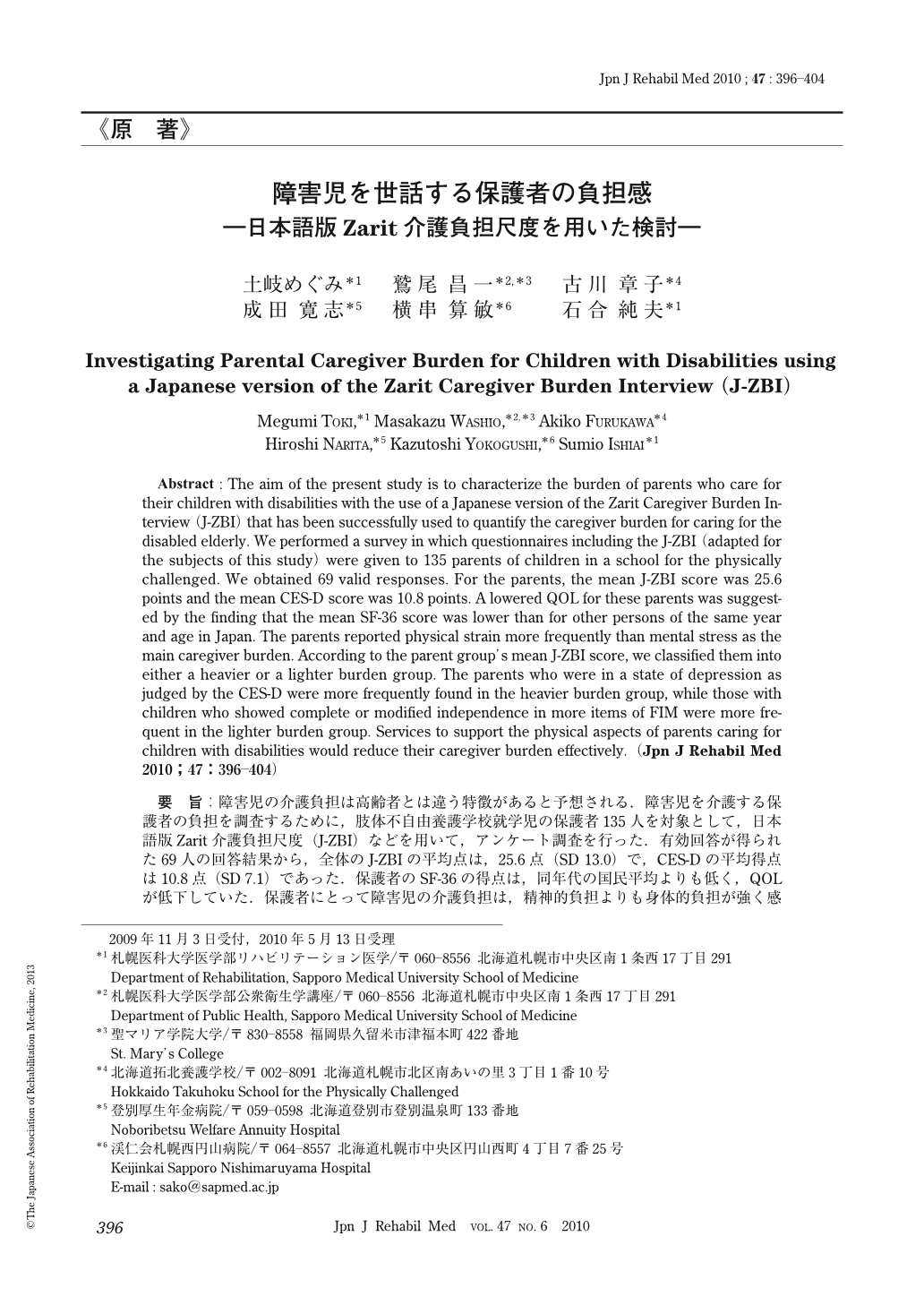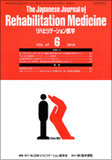Japanese
English
- 販売していません
- Abstract 文献概要
- 1ページ目 Look Inside
- 参考文献 Reference
要旨:障害児の介護負担は高齢者とは違う特徴があると予想される.障害児を介護する保護者の負担を調査するために,肢体不自由養護学校就学児の保護者135人を対象として,日本語版Zarit介護負担尺度(J-ZBI)などを用いて,アンケート調査を行った.有効回答が得られた69人の回答結果から,全体のJ-ZBIの平均点は,25.6点(SD 13.0)で,CES-Dの平均得点は10.8点(SD 7.1)であった.保護者のSF-36の得点は,同年代の国民平均よりも低く,QOLが低下していた.保護者にとって障害児の介護負担は,精神的負担よりも身体的負担が強く感じられていた.J-ZBIで保護者を2群に分けると,点数が高く,より介護負担が重いと考えられた保護者群は,CES-Dでうつ状態と判定される人数の割合が多く,同群の障害児のADL自立程度が低かった.保護者の身体的負担を軽減するサービスの利用で,介護負担は軽減される可能性がある.
Abstract : The aim of the present study is to characterize the burden of parents who care for their children with disabilities with the use of a Japanese version of the Zarit Caregiver Burden Interview (J-ZBI) that has been successfully used to quantify the caregiver burden for caring for the disabled elderly. We performed a survey in which questionnaires including the J-ZBI (adapted for the subjects of this study) were given to 135 parents of children in a school for the physically challenged. We obtained 69 valid responses. For the parents, the mean J-ZBI score was 25.6 points and the mean CES-D score was 10.8 points. A lowered QOL for these parents was suggested by the finding that the mean SF-36 score was lower than for other persons of the same year and age in Japan. The parents reported physical strain more frequently than mental stress as the main caregiver burden. According to the parent group's mean J-ZBI score, we classified them into either a heavier or a lighter burden group. The parents who were in a state of depression as judged by the CES-D were more frequently found in the heavier burden group, while those with children who showed complete or modified independence in more items of FIM were more frequent in the lighter burden group. Services to support the physical aspects of parents caring for children with disabilities would reduce their caregiver burden effectively.

Copyright © 2010, The Japanese Association of Rehabilitation Medicine. All rights reserved.


